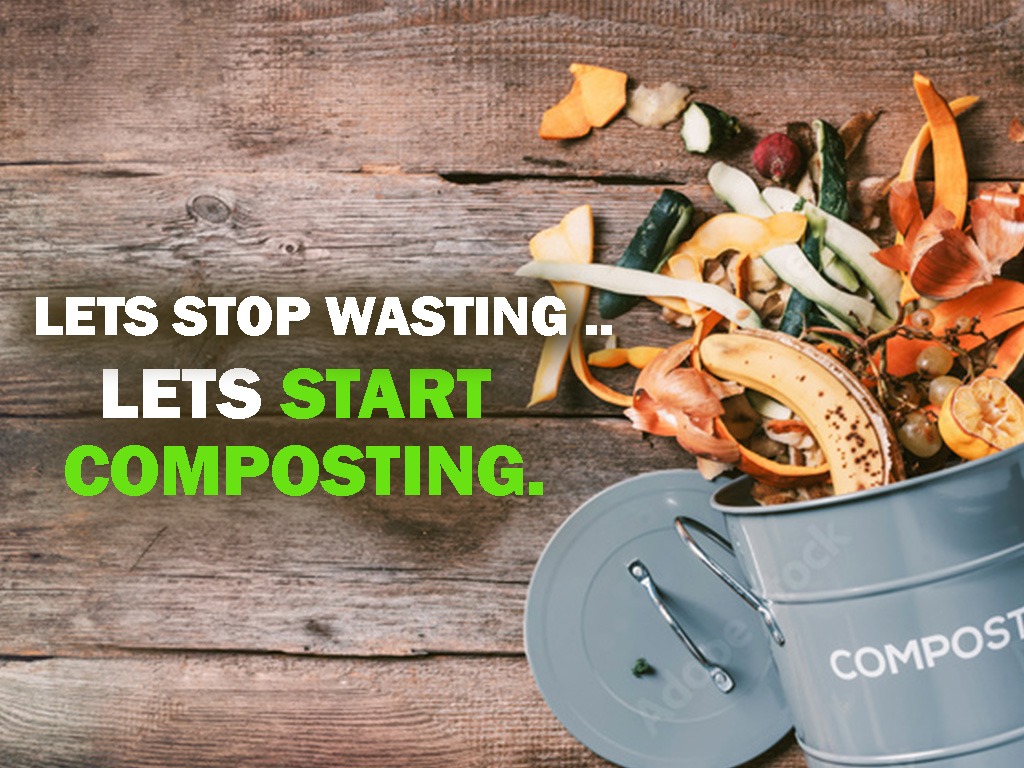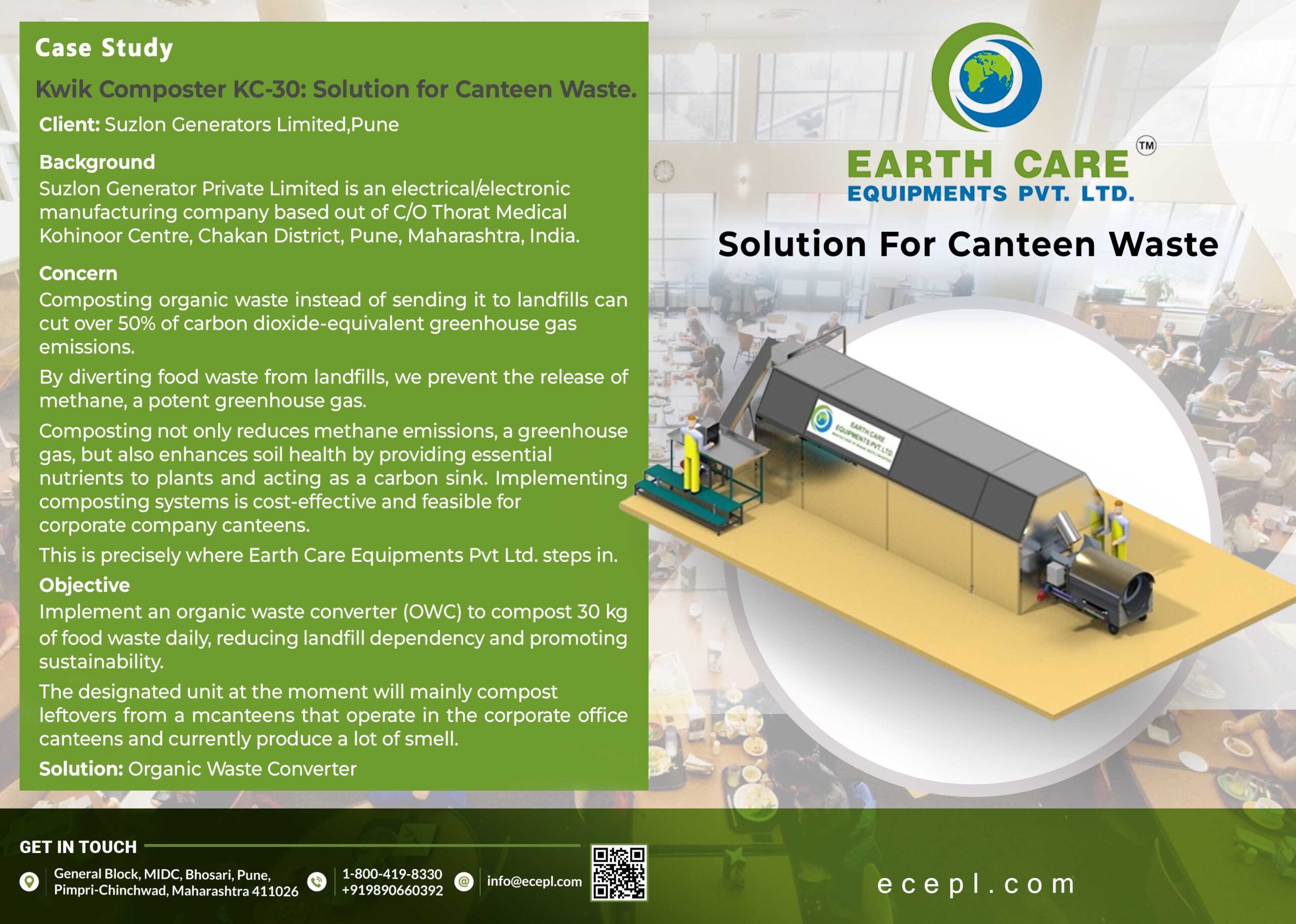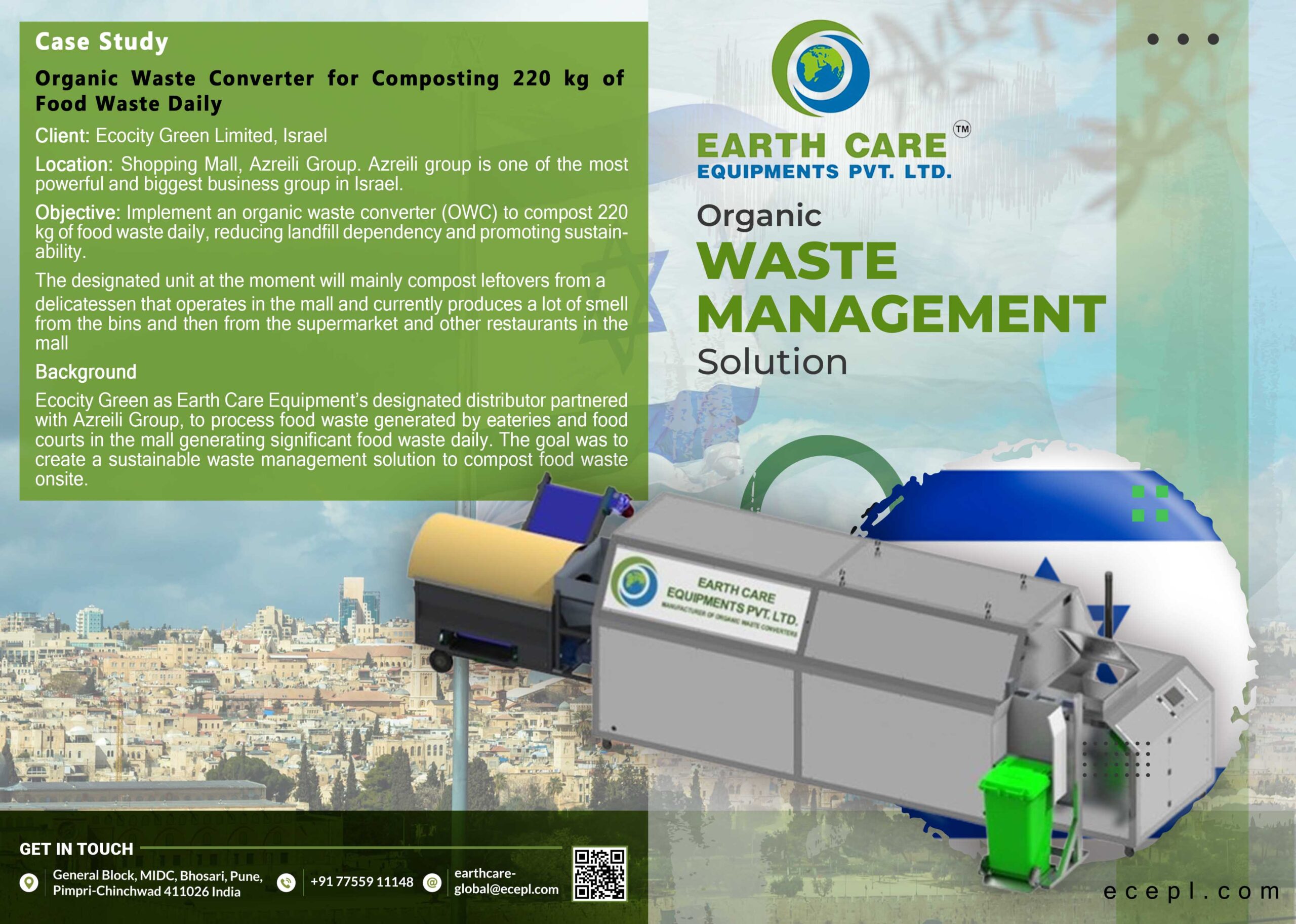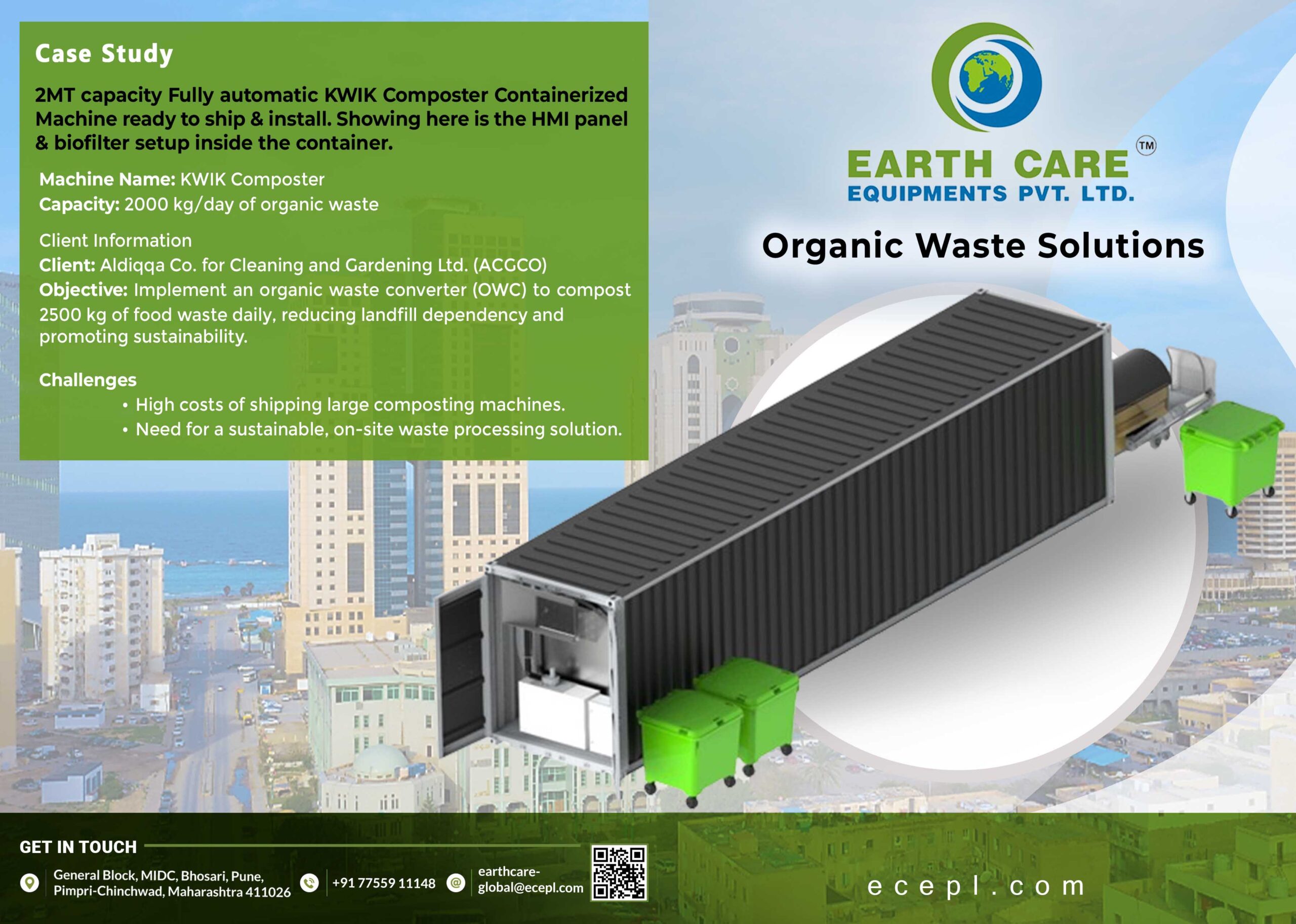
In recent years, the amount of waste produced by humans has been increasing exponentially. The increase in waste has been linked to a variety of factors, including population growth, increased consumption, and the lack of proper waste management. Although there have been some efforts to reduce the amount of waste produced, this has not been enough to counteract the growing problem. One of the solutions to this problem is composting, which has been gaining traction in recent years. Now, as the world moves towards a more sustainable future, composting is becoming an increasingly popular way to reduce waste. Composting not only helps the environment, but it can also be beneficial to gardens and soil in general. However, composting can be difficult to do on a large scale. That’s why companies like Earthcare are providing complete solutions for composting wet food waste.
Earthcare offers a range of organic waste converters which can be used to compost wet food waste from 25 kg to 25 metric tons per day. These converters are designed to be environmentally friendly, efficient, and easy to use. They are capable of handling a variety of organic materials, including fruits, vegetables, grains, and other food scraps.
Not only do Earthcare’s organic waste converters help reduce the amount of waste that goes into landfills and oceans, but they also help to create nutrient-rich compost that can be used to fertilize gardens and soil. This compost is rich in essential minerals and nutrients that plants need to thrive. And, since composting is a natural process, the compost created by Earthcare’s organic waste converters is free of any harmful chemicals or toxins that could be potentially harmful to plants or animals.
What is Composting?
Composting is the process of recycling organic materials such as food scraps, garden waste, and paper products. Instead of being sent to landfills, these materials are broken down by microorganisms to create a nutrient-rich soil amendment known as compost. Composting is a great way to reduce the amount of waste produced, as it can divert up to 50% of organic waste from landfills. Additionally, composting can provide numerous benefits to the environment. It can reduce greenhouse gas emissions, improve water and air quality, and replenish soil nutrients.
Despite these benefits, composting is often overlooked as a waste management solution. This is due to a variety of factors, including the lack of knowledge about composting and the perceived difficulty of setting up a composting system. However, composting does not have to be difficult. There are numerous types of composting systems, ranging from simple backyard composting to complex industrial systems. Additionally, there are a variety of resources available to help individuals get started with composting, such as composting classes and composting kits.
Composting is a great way to reduce waste and benefit the environment. To encourage more people to get involved with composting, there should be more resources available to educate people about the benefits of composting and how to get started. Additionally, composting should be made more accessible by providing incentives to those who participate in composting, such as discounts on composting equipment or tax incentives. By making composting more accessible and encouraging more people to get involved, we can reduce the amount of waste produced and create a more sustainable future.
What is compost? – Compost Basics
Compost is just organic matter that has decomposed; nevertheless, the term “organic matter” has a rather broad definition. Organic debris can include twigs and banana peels alike. These things naturally decompose when combined in a compost pile to produce a fertilizer that is rich in nutrients and supports the growth of gardens.
What to Compost?
Types Of Matter
Brown matter is anything dry or woody, such as twigs, branches, paper, and cardboard. There are certainly exceptions to the general rule that “brown” goods will often be naturally brown. Brown matter contains carbon, which gives the compost’s helpful bacteria energy.
The green matter is a term used to describe organic waste materials that may have recently been growing and still contain some moisture. Green matter can contain items like leftover fruit and vegetables, grass clippings, and coffee grounds, among other things.
Note – Most of the time, your green waste will provide your compost mixture with the right amount of moisture for effective decomposition, but if it is too dry, you might need to add extra water.
What Not to Compost?
There are (nearly) unlimited possibilities for objects you may compost, but there are a few things you should avoid doing so if you want to end up with a compost that makes an effective and secure fertilizer (beyond the obvious, like plastic products).
Fish and meat
Animal byproducts, including meat, fish, eggs, dairy, and poultry products, are one of the largest groups. Even while you might assume it’s okay to compost certain kinds of animal waste, doing so can encourage the growth of bacteria, odor issues, and pests like rodents.
Oils, fats, and dairy
Because they also draw pests, dairy products including milk, sour cream, yogurt, cheese, and butter shouldn’t be composted. The same holds for fats and oils.
Charcoal Ash and Coal
You should carefully evaluate what you compost and the possible harm it might cause to your plants if your ultimate objective is to create a usable fertilizer for your plants. By the time you use your fertilizer, your vegetable garden may already be dead since items like coal or charcoal ash may contain compounds toxic to plants.
Amount of Black Walnut Tree Debris
The toxin juglone, which is known to damage numerous plants, including peppers, potatoes, and tomatoes, is present in black walnut tree leaves and twigs.
Pesticide-Treated Plants or Wood
Additionally, you should avoid trimmings from plants that have received pesticide treatment in the past.
Plants that are ill or are pest-infested
Pests and pathogens can survive since a compost pile has to reach 141 to 145 degrees F for at least several days to kill fungus and bacteria, which is not practical for a residential compost bin.
Grass That Has Sprouted
Unless a high temperature is reached, they can also live, and you probably don’t want to plant weeds in your subsequent crop.
Cat or Dog Excreta
Pet waste contains germs and parasites that can lead to human illnesses, making compost dangerous. For instance, the bacterium that causes toxoplasmosis is found in cat faces and litter. Pregnant women should pay special attention to this condition because it can adversely harm an unborn child.
Composting is an important part of the effort to reduce the amount of waste that goes into landfills and oceans. Earthcare’s organic waste converters are an effective and efficient way to compost wet food waste on a large scale. They provide a complete solution for composting, from education and resources to the actual converters themselves. With Earthcare’s help, you can start composting and making a difference in the world.




